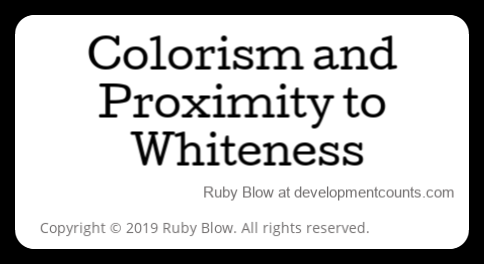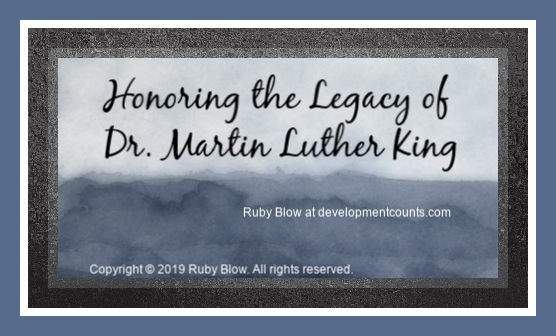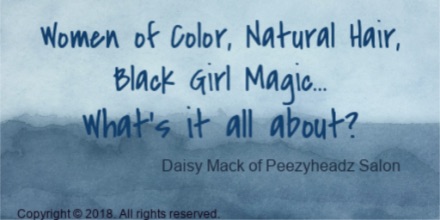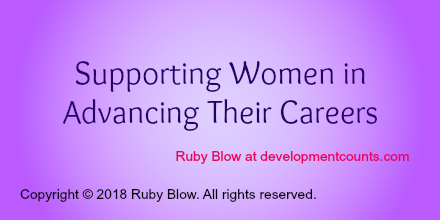The Black Psyche (Psyche= The Human Soul, Mind or Spirit)
I can’t think of a film since Spike Lee’s “Do the Right Thing” that captures more layers of the “Black Psyche” than Marvel’s “Black Panther.” As such, there will be a part 2 to this analysis. Black Panther captures the complexity of the relationships, trauma and shared history between:
- Africans,
- African Americans; and
- Africans throughout the diaspora.
If you have not already seen Marvel’s Black Panther film, this a fair warning that there are major plot spoilers in this blog post. My analysis of this film and its characters is based solely on what I have observed watching the recent Marvel films featuring the Black Panther character which include his introduction in “Captain America: Civil War”; the expansion into his story featured in the fictitious country Wakanda in the film “Black Panther”, released in February 2018 during Black History Month; and my knowledge of black history in America, as well as the current societal challenges faced by African Americans.
The Black Panther
The Black Panther is the warrior guardian of the people of Wakanda, a country rich in a powerful metal called vibranium. This precious metal can only be found in Wakanda and the inhabitants have guarded it closely. However, it was stolen in the past by a white thief who sold the vibranium it to the organization (S.H.I.E.L.D.) who subsequently used the metal create Captain America’s shield.
This is significant because it is symbolic of the wealth of mineral and natural resources on the continent of Africa that has long been stripped from African countries and then claimed and monetized by western nations. Generally speaking in black and African communities these “trade” deals are viewed as being detrimental to “the Continent” a.k.a. Africa.
Many in black communities recognize this process as stripping away natural resources that leaves the continent of Africa and its many nations depleted. The biggest and most painful resource that was stripped from Africa for hundreds of years were its people. They were sold (or kidnapped) into slavery into slavery and shipped via the Middle Passage all over the world including to Europe, the Caribbean, and the America’s (North and South), to name a few – also known as the diaspora or “the dispersion of any people from their original homeland.”
The Significance of Wakanda
The depiction of the mythical country Wakanda is vastly important to understanding why many African Americans are moved by this film. Additionally it captures the often strained relationship between Africans and African Americans or Black people of African descent through out the world.
Wakanda is the wealthiest nation in the Marvel Universe. This makes the character T’Challa, who is the Black Panther as well as the King of Wakanda, the wealthiest person in the Marvel Universe. Wakanda is depicted as a nation untouched by colonization and slavery. It is presented as a somewhat idyllic place that western (thus, white ideology) has not touched. It represents a place of respite from a larger white world that devalues black people and minimizes the painful legacy of our experiences with phrases like:
- “Slavery was so long ago. Let it go…that has nothing to do with now;” and
- “This country has given you great opportunity. If you don’t like it go back to Africa (i.e. home)”
It gives us (the viewing audience and black people in particular), the answer to several questions we can never know the answer to:
- “What would have become of us if we were not stripped from African nations?”
- “What could an African nation-state look like with all of its rich resources intact and its people unmolested by colonization and the slave trade?” and
- “Where is home and what would it feel like to be there?”
Ryan Coogler, the director and co-writer of the film, selected from real African nations and traditions as creative source material for Wakanda tribes depicted in “Black Panther”.
- Wakanda is significant because it gives Africans a reflection of their rich and varied cultures, depicted in a respectful and celebratory manner.
- Wakanda is significant for the descendants of the diaspora, because we experience ourselves neither being fully embraced by Africans nor by many Americans as having equal worth or value.
- Wakanda is also significant because it gives a window into the mindset of a country that looks inward towards its own to the exclusion of those “other” Africans who needed their help or aide during colonization and enslavement.
Dressing Out and Showing Up
In Wakanda, we see a beautiful tapestry of people adorned in colorful cloths and jewelry. The people of Wakanda come from a number of tribes. All of the people of Wakanda have kinky hair or wear shaven heads (in some cases with tattooed heads). It is a depiction of a place where people are vibrantly “un-apologetically black.” There appears to be no desire to be something other than who one is by nature. Many black people in the viewing of this film showed up to the theater in whatever African themed attire they had or could purchase. This sparked some debate between Africans and African Americans about the perceived and experienced disrespect involved with wearing African “themed” clothing items as essentially a costume to some, while other view it as a celebration.
The controversy over attire worn to this film is rooted in several factors.
- Many black people of the diaspora have rejected association with African clothing and culture as we have believed the negative and popular depictions of Africans on TV and film as being a poor place where people are are hungry, impoverished savages.
- As a result, our wearing African related attire to the film, can be experienced as a sudden interest in our African identity due to the Black Panther film. But this interest is far from sudden.
- Most African Americans are not wearing African garb to the film as a mascot or over-simplification of African culture. Instead, many are grasping for a place to be within the fabric of a cultural identity rooted in our unknown African heritage.
In the film Black Panther, one character depicts the descendant child of the diaspora more than any other. He is the villain known as Killmonger.
Killmonger
The character Killmonger is brilliantly played by Michael B. Jordan. He is an actor very well known among African Americans. He grew up as a child actor on television including:
- the HBO series “The Wire” about Baltimore’s drug world, schools, docks, and police department,
- the soap opera “All My Children” as the adopted child of a white character on the show, and
- later as a teen on the show “Friday Night Lights,” a show about high school football players and their paternalistic coach.
As such, Michael B. Jordan is a beloved actor who we have not previously seen play a villain. He has played in previous films Ryan Coogler directed including:
- the son of Apollo Creed from the Rocky series in the movie “Creed”, and
- as Oscar Grant in a biopic called “Fruitvale Station, ” about a young man who was killed/murdered by police on New Years Eve 2009.
Micheal B. Jordan, Chadwick Boseman, Angela Bassett and Forest Whitaker are the four main cast members who are African American. Many of the actors in the film are African or 2nd generation African from throughout the diaspora.
When we are introduced to Killmonger, he is a child growing up in Oakland, CA (L.A.) in 1992. This is a significant year for African Americans as it is known immediately in relation to the Rodney King verdict. Los Angeles police officers were not held accountable for the brutal beating of Rodney King that was captured on video. Their acquittal was the culmination of a series of culture clashes between Korean shop owners, African Americans, and the L.A. Police Department that had been brewing over a number of years.
The L.A.P.D. has a well documented history of strained relationships with African Americans in their community due to a number of factors that I won’t list here. If you don’t feel well versed and are interested in the many cultural perspectives on the L.A. Riots of 1992, an excellent documentary on the subject came out in 2017 called “Let It Fall.” You can view the official trailer for “Let It Fall” at the end of the post.
As a child, the character Killmonger finds his father shot to death in their apartment. His father’s brother was T’Chaka, the 1992 Wakandan King and Black Panther. T’Chaka is Killmonger’s uncle, making T’Challa, (the modern day Wakandan King and Black Panther) his cousin. T’Chaka’s character is killed in a bomb blast in the film “Captain America: Civil War” (2015). Killmonger was apparently left alone (abandoned) as a child by Wakanda’s King after his father’s murder. The film does not mention what happened to his African American mother.
Killmonger, like many African Americans, grows up and joins the military. He joins special forces where becomes skilled at killing and de-stabilizing governments. His character ultimately makes his way to his never visited homeland Wakanda and he de-throwns the King T’Challa, thereby becoming the Black Panther.
Killmonger Sympathetic Villain?
There is much debate about this character because he embodies the painful results and legacy of slavery and abandonment. He represents the lost child, the displaced and rage-filled person. He doesn’t have a home and he doesn’t have parents. This is significant because during slavery families were routinely sold away from one another. Parents could not protect their children and men and women (husbands and wives; brothers and sisters) could not protect one another.
Killmonger’s rage is demonstrated repeatedly and most notably toward the women he encounters.
- He is deeply flawed in that he kills his lover and co-criminal conspirator in his quest to get to Wakanda.
- After he becomes King, he burns the sacred flower garden and harvest to prevent anyone else from possessing the strength of the black panther; he places a choke hold around the neck of a female elder in the tribe and lifts her off of the ground when she hesitates to burn the sacred flower.
- Later in a battle scene against the “Dora Milaje,” he cut the throat of one of the brave women warrior guards sworn to protect the Wakandan throne.
The black audience is split; forced to examine their feelings about a character who, on one hand, expresses the desire to be King of Wakanda so that he can use its resources to battle for the lives of black people across the world. Essentially, wishing to arm them with the many technologically advanced Wakandan weapons and do to colonizers and the descendants of slave traders what was done to us (somewhat of a revenge/liberation fantasy).
On the other hand, it is clear that Killmonger has been stripped of his empathy and humanity by his inability to connect with and care for his own people. While this is not by any means true of all African American men or women, it does reflect a deep rooted pain as well as deeply systemic problems that plague the black community in America.
This truth about Killmonger reflects the multifaceted and myriad challenges that African Americans face.
- Including the fact that a 2015 Violence Policy Center study found that Black women were 2.5 times more likely to be murdered by men than their White counterparts.
- Additionally, the challenges of the modern black family as it relates to black children being at risk of growing up without one or both parents due to death, incarceration or a number of other factors. In fact, recent health studies have shown an overall rise is pre-mature death rates post-partum of African American women compared to our white and Latin counterparts; due to a myriad of health disparities.
- The Netflix documentary film “13th”, directed by Ava DuVernay, examines mass incarceration and its disproportionate impact on African American men in particular and its direct relationship to slavery still being legal if a person is incarcerated.
Suffice it to say that Killmonger is not welcomed home to Wakanda. He is hostile but also imbued with a righteous anger that his family abandoned him in America and made no attempts to bring him home/rescue him. An unasked and unanswered question that many African Americans can related to-
- “Why didn’t you come for us?”
- “Why did you not do everything you could to bring us home?”
- “Why did you not band together resources and save us from the brutal enslavement and displacement from our roots?”
Tell Them Who You Are
There are two times during the film that T’Challa the Black Panther is challenged for the throne. In a ritual battle scene early in the film the Black Panther T’Challa is stripped of his powers so that he can be challenged for the throne. He fights M’Baku of the Mountain Tribe of Wakanda. At one point during the battle, T’Challa is losing. He is exhausted and losing strength. His Queen Mother, Ramonda, and his younger sister, Princess Shuri, look on along with representatives from all of the tribes. Ramonda says something like “Tell him who you are,” in the midst of T’Challa losing the battle.
T’Challa begins to speak his name “I am…” and goes on to list the “son of… T’Chaka” etc… he lists his ancestor’s name(s) and titles. He gains strength from his mother and sister reminding him of who he is. He gains strength from his ancestors.
This scene is symbolic on several important levels.
- T’Challa knows who he is and where he comes from. He knows his lineage. The vast majority of African Americans and African descendants throughout the diaspora do not know their family name or origins. Our last names, with the exception of those who have changed them are the names of our recent ancestors owners (i.e. slave owners).
- A key factor in the enslavement of black people involved banning our original language and spiritual practices and religion. Many native African religious and spiritual practices involve a connection to the great ancestors that have gone before us. They remain connected to them after death and practice rituals to engage their ancestors. The practice of pouring libations or “pouring one of the dead homies,” depicted in other popular culture films is a reflection of that practice. Some African Americans place images of deceased loved ones on altars in their homes and invoke their spirit during both solemn and joyous occasions.
- Several years ago, during a ceremonial circle, I heard the story of an African tribe that assigns every person a song that includes their name when they are born and it is sung to them. As life blazes on, if that person becomes lost on their journey by going outside of their character. They are reminded of who the are by the whole village coming together and singing the song of their name. Essentially calling them back to themselves.
In a later scene, after T’Challa wins his ritual battle (potentially fighting to the death, but he stops short because he values M’Baku’s life), T’Challa regains his Black Panther strength by consuming the sacred flower. This ritual involves being buried and re-uniting with ancestors on the ancestral plane. These scenes on the ancestral plane, clearly depict a spirituality and belief system rooted in what I can only imagine are a variety of African spiritual or religious beliefs.
The Black Psyche, Religion and Spirituality
Since slavery, many people of African descent practice Christianity because that is what was taught and allowed. Other practices were met with severe and swift punishment or death. Christianity teaches among other things that “we are all sinners and have fallen short of the glory of God; that Jesus died for our sins and that if we take Jesus Christ as our Lord and Savior we will have a place in heaven.”
Some (African Americans) have since chosen not to continue Christian practices and beliefs; still many others continue to have a foundation in Christian faith and ideology. This is maintained by the sentiment that some people misused Christianity (for instance: to justify slavery) but we (African American Christians) are practicing the true tenants of the Christian faith.
For many black people this has meant an introduction to God (Jesus) that does not look like them and a religion that espouses that a humble and meek nature is more desirable than one imbued by self identity and self-empowerment. It is not about who you are; it is about who God created you to be…and grants for you. Your agency and empowerment are by the “grace of God.” Your gratitude is to God and so are your thanks when receiving anything and everything. The Christian beliefs in many ways work as substitute for the unknown traditional African spiritual and religious beliefs that were stripped away during the diaspora.
- Sunday was a day off from the slave field.
- Sunday was a day for fellowship and a day of rest.
The Christian faith teaches that the woman was made for man from his rib or as his rib. In the next installment of this series about the Black Panther film and the Black Psyche, the relationships between men and women will be explored. Suffice it to say Wakanda shows an African world untouched by colonialism and other religions; in this fictional world women are powerful and empowered. Black women are not portrayed as angry or having an attitude. In Wakanda, women do not take a back seat to men.
Stand Up You Are a King!
During T’Challa’s first visit to the ancestral plane he goes to his knees before the spirit of his actual father the King T’Chaka – not a heavenly father (God) – and says he does not know if he can “do it” (lead) without him. His father tells him “Stand up you are a King!”
Perhaps the most healing and powerful call to action to black men and boys of African descent viewing the film “Stand up you are a King”, is a call back to one’s self. An affirmative statement of worth. It provides a fathering statement to men and boys who grew up with or without fathers, and who may or may not have been empowered in their formative years to know themselves as:
- capable;
- powerful;
- affirmed;
- loved in an expressed way;
- and believed in.
“Stand up you are a King” is also a call to action. It reminds me of the song lyrics in “Get Up” by Amel Larrieux: “I know you’re down…but when you gon get up?”
Copyright © 2018 Ruby Blow. All rights reserved.
Share your thoughts on Linkedin, Facebook, Twitter or log in to one of your accounts below to comment. Subscribe to my YouTube channel.





